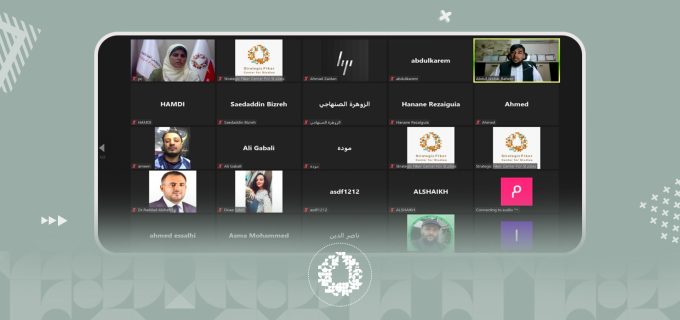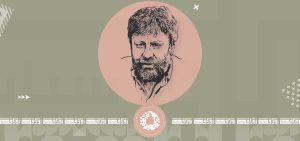The Strategic Fiker Center for Studies held a political symposium entitled:
“The Taliban and the return to Afghanistan… Will a new page in regional and international relations begin?” On Wednesday, October 27, 2021. In the presence of experts and specialists in Afghan affairs and Islamic movements. Within four main axes discussed by the center to determine the nature of the Afghan scene after the Taliban movement’s control of the capital, Kabul. The evacuation of the last American soldier last September.
The head of the Afghan Center for Media and Studies, Abdul-Jabbar Bahir, said in his intervention on the axis, “The movement’s political project, its features and challenges, and the characteristics of the Taliban’s foreign policy after returning to Afghanistan.” : “The Taliban movement arose in local conditions and was not connected to the outside world, but after twenty years it proved the error of the American narrative by looking at it as a terrorist movement, and it was not originally a supporter of international terrorism.”
The head of the Afghan Center for Media and Studies pointed out that the movement began to change its policy after the end of the US invasion of Afghan lands and the declaration of the country as an Islamic emirate. He added, “This time, the movement’s religious reading was not as strict as it was before. The movement pledged to form an Afghan government that includes all political, ethnic and sects on the basis of a comprehensive national system.”
He stated that among the drawbacks of the Taliban movement today is its failure to present the political-administrative model in managing the country’s affairs. The movement still fears the United States of America, as it classifies it as a terrorist as well as some countries hostile to it.
In turn, the journalist and expert on Afghan affairs, d. Ahmed Zaidan, during his intervention on the axis of “The Afghan scene after the return of the Taliban again… Features of political life and the regional and international openness of the movement”: “The ball is currently in the court of the regional and international levels.” Pointing out that the movement has made very important moves in terms of intellectual review and practical practice on the ground, which may not have been achieved by leftist, Islamist or even liberal movements in the Arab region.
And the expert on Afghan affairs, Dr. Ahmed Zeidan, stated that the Taliban movement’s interaction with the Afghan opposition was positive and important to the movement. Especially since it did not impose any force or authority on the opposition currents in the Afghan lands or even other sects, which made it a space of respect and acceptance.
In the same context, the researcher pointed out in political and strategic affairs. Engineer Ahmed Maulana, during his talk on the axis of “How the Taliban managed their internal differences, and the negotiation process with Washington… Lessons and lessons”, that the movement dealt to control its internal caliphate through two things; The first is the shura, and the second deals firmly with violators.
As for negotiating with Washington. The researcher drew Mawlana saying: : “The Taliban’s negotiation experience is distinctive and worthy of study and taking lessons and lessons, especially as it reaped many political fruits through it, similar to some Islamic movements and others that consider negotiation with the occupier or the enemy a waiver of their rights.” He explained that one of the most important factors of the Taliban’s success in negotiating with Washington is that it negotiated the terms of the occupier’s withdrawal from its lands, not the form of the Afghan political system because it is an internal matter.
On the other hand, said a researcher at the Strategic Fiker Center for Studies, Professor Ali Jabali. In his speech on the topic “Future challenges in the path of Afghan peace..most notably, and can the movement overcome them today?”: “A number of political challenges are still in the path of the Taliban movement today. countries. They cannot live alone as the diplomatic isolation experienced and suffered by the movement.”
Added researcher at Strategic Fiker Center for Studies. : “The presence of different political groups, sectarian and ethnic, is also considered another challenge for the movement. In addition to the fact that the movement has not yet presented any political vision for its future program in managing the country’s affairs.”
The Center concluded the political symposium with a set of questions posed by participants from several Arab countries to the interviewees. The most prominent of them revolved around the extent to which the Taliban experience was benefited from and dealt with in the context of the conditions in the Arab region. In addition to the possibility of regional and international openness of the movement to countries that were considered enemies, such as Russia and others.




